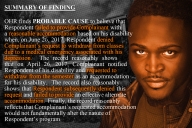You have /5 articles left.
Sign up for a free account or log in.

ALLVISIONN/istock/getty images plus
As we confront retirement, professors commonly state that we will miss our students and our teaching. Some of us delay retirement for that reason. At the time of my retirement, I did not share that feeling. But during the last year or two, I learned a compelling lesson. I have resumed teaching at expanding levels and in a wider range of forums and media outside the box of the formal classroom—including via Zoom—and the university. This is a central component of how I define my postretirement niche in public, rather than university, education.
I am a retired professor of history, English, humanities, social sciences and education. I first taught as an undergraduate teaching assistant in 1969 and conducted my final undergraduate and graduate seminars in 2016. I taught at all levels, from large lower-division lecture courses to doctoral seminars; I supervised dissertations in several disciplines, including service as an external adviser at other colleges and universities. This experience spanned private and public, small and large, and old and new institutions.
I continue to assist my former doctoral students, many of whom are now professors or established in other careers, as well as my colleagues across the world. Within a two-week period at the beginning of 2022, I helped a former student, now an assistant professor of history, finalize the book developed from her dissertation; shared another former student’s new journal article with colleagues in her field, one of whom immediately added it to his course syllabus; and introduced the two former students in the hope of their collaborating on questions where their interests overlap.
Over the same weeks, I discussed, critiqued and edited chapters for two younger colleagues in different disciplinary departments who are preparing book manuscripts for publication, annual reports and pretenure reviews. And I counseled a younger colleague who is on the job market about the expectations and experiences of interviews and her right to question her interviewers.
Across my years as a professor, my teaching was inseparable from my research, writing and service in shaping my career and professional identity. My autobiography nearing completion, The Continuing Education of a Historian: The Intersections of the Personal, the Political, the Academic, and Place, explores those connections. (See also my essay “A post-retirement career as a public academic meets the moment’s need” in Times Higher Education.)
Teaching outside the box is dynamic. It takes an increasingly wide range of forms. In one recent week, for example, two students contacted me via email—one a college senior, the other a high school senior. Both encountered me online. The first, a history and geography major, regularly reads my “Busting Myths” column in the Columbus Free Press. My essays on Ohio State University’s adjacent University District’s relationships with the university and the city of Columbus interested him. They also relate to a course project he was completing for a combined upper-level and graduate geography seminar. He emailed me, told me about his project and asked for my advice. We spent two hours talking fruitfully about his project, his education and his future plans as a teacher.
The second case is more outside the box. An unusually accomplished high school senior is researching her senior project on critical race theory. She has superb English and history teachers. In beginning her research, she discovered online the video of a forum, “Fiction and Fact About Critical Race Theory,” that I presented for the Kirwan Institute for the Study of Race and Ethnicity at Ohio State University in September 2021. Intrigued by my presentation, she located me and asked if she could interview me. I agreed and sent her several not-yet-published essays and references.
We spoke for more than one hour on the telephone. She asked excellent questions, requested leads and more references, and asked me to critique her developing ideas. It was a great pleasure. I have taught relatively few undergraduate students as well grounded and intellectually active. We remain in contact as her project develops.
These illustrations stand out, but they are not alone. My current teaching includes virtual forums like the one mentioned above and a January 2022 professional development talk to the faculty of Zayed University in the United Arab Emirates. The provost’s office at the institution invited me to speak about the themes and lessons of my book Undisciplining Knowledge: Interdisciplinarity in the Twentieth Century (Johns Hopkins University Press, 2015) and related essays. The success of that lecture led us to plan for a series of virtual open conversations.
I write my once- or twice-weekly “Busting Myths” column for Columbus Free Press, primarily using historical, interdisciplinary, comparative and critical perspectives to examine contemporary debates on local and national issues. I also speak to NPR stations across the U.S., especially on critical race theory misrepresentations and the underlying questions. I assist local and national newspaper reporters on a range of topics on which I have an interest in educating a larger public audience.
This mission extends to elected officials nationally, in Ohio state government and in the city government of my hometown of Columbus, Ohio. I share my research-based perspectives as well as national media and scholarly materials with legislative aides on multiple levels of government. Similarly, I advise local, state and national advocacy groups on a wide range of issues.
My overarching public education engagement derives from my experience as a lifelong author of scholarly books and articles. With the assistance of a small number of excellent editors who actually edit, I have learned to translate my views into short, clear, accessible essays on current issues that draw on my expertise.
I write in large part to share my experiences—and promote new forms of active learning as well as teaching—with my peers and slightly younger cohorts. My postretirement pursuits are certainly those I’d recommend to other scholars at this phase of their lives. On one hand, my new niche required a significant period of transmission; it did not begin the day after I left my office. On the other hand, finding many ways of using my long-developed knowledge and skills in both old and new environments is stimulating and rewarding. Not the least of this is growing numbers of new colleagues/friends inside and outside universities, including current students, faculty, administrators and many other sectors.
Finally, I’d be remiss not to mention a special segment of my new public: my wife’s and my surrogate grandchildren (the children of younger colleagues and former students)—most of them 6 years old or younger. We buy them important books, like the new “1619 Project” children’s book Born on the Water, and we have conversations about social justice, “reading the city” and cultural diversity.
My classroom no longer has walls; it keeps expanding.








